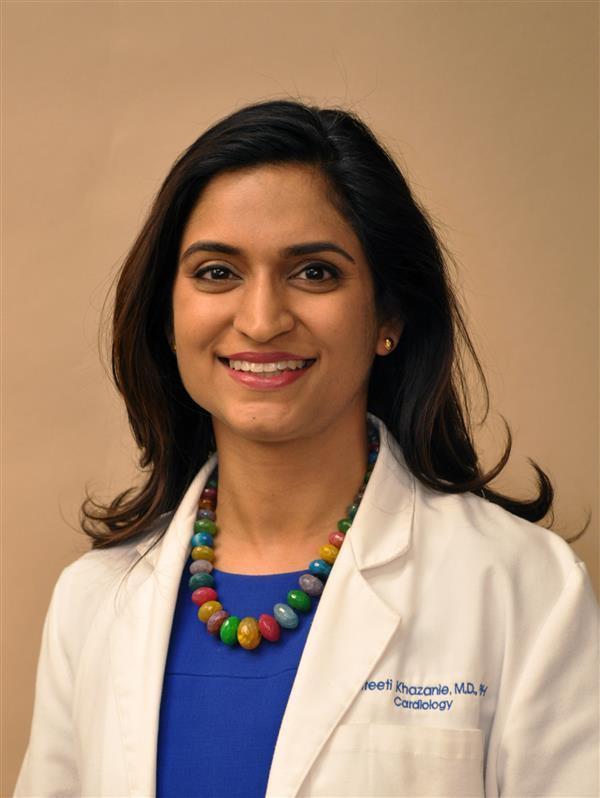Prateeti Khazanie, MD
Ludeman Center May 1, 2019 Our goal is to build on this research to develop a more standardized and equitable system for evaluating women and men for advanced heart failure therapies.”
Our goal is to build on this research to develop a more standardized and equitable system for evaluating women and men for advanced heart failure therapies.” An Assistant Professor in the Division of Cardiology at the University of Colorado School of Medicine, Dr. Khazanie specializes in Advanced Heart Failure and Transplant Cardiology.
Cardiology has long been a male-dominated field. Only 12% of all board-certified cardiologists are women. I became a cardiologist because I was inspired by Dr. Sharon Hunt, a heart failure and transplant cardiologist, during my internal medicine residency at Stanford University. After residency, I went on to receive specialized training in cardiology and then focused on advanced heart failure and transplantation at Duke University. During my clinical and research training, I became concerned about sex disparities in heart failure care, including differences in diagnosis, medication use, referrals to specialists, and use of advanced therapies like heart transplant and heart pumps.
Once patients develop end-stage, advanced heart failure, their only treatment options are hospice, heart transplant, or left ventricular assist devices (LVADs), surgically implanted heart pumps that help blood circulate in the body. Approximately 25% of all heart transplants and only 20% of all LVADs occur in women even though women are equally likely to have heart failure as men. This disparity occurs for multiple reasons, and my research supported by the Ludeman Center focuses on exploring why these disparities occur and how we can reduce them in the future.
The number of heart transplants available is very limited so LVADs are often the only treatment option available. Most LVAD implants currently occur in older men. In order to receive an LVAD, a patient must pass both a standardized medical evaluation and an unstandardized social evaluation. There are many necessary caregiver requirements for LVAD implantation, but every center has different rules. For example, some centers require a 24-7 caregiver for three months while others allow more flexibility. We hypothesize that many women are unable to receive LVADs because they are disqualified for social reasons rather than medical reasons (i.e., they are often caregivers for other people but have difficulty finding caregivers for themselves). This type of problem is potentially correctable with policy changes. Through our research project supported by a Ludeman Center grant, we are using data collected at multiple LVAD centers in the U.S. to better understand social factors that disqualify patients for LVADs. We are comparing caregiver plans for men and women who were evaluated for LVADs at different centers. We are also conducting a nationwide survey among social workers to compare social evaluation practices for LVADs at different centers. These data will help us identify social barriers to LVADs and potential interventions that will make it easier for women to receive LVADs if it is the right therapy for them.
The financial support of the Ludeman Family Center for Women’s Health Research is a critical step to develop a foundational understanding, eliminate inequities and provide better treatment opportunities. Our goal is to build on this research to develop a more standardized and equitable system for evaluating women and men for advanced heart failure therapies, like LVADs, across the country. I am incredibly thankful to be a Ludeman Center researcher. The support and guidance I receive makes me a better researcher, and I have the opportunity to investigate important issues that will help physicians better treat our patients.
Tags:
CWHR Researcher Spotlight